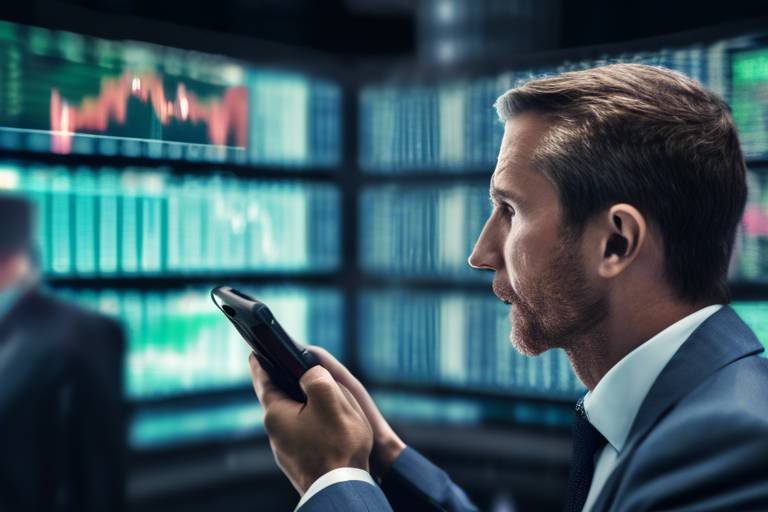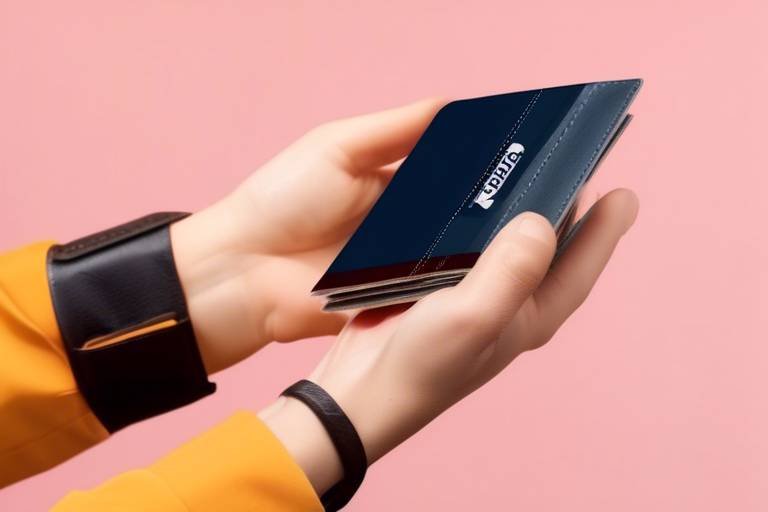How to Conduct Due Diligence on a Crypto Exchange
In today's fast-paced digital world, cryptocurrency trading has become a popular venture for many investors. However, diving into the crypto ocean without the right knowledge can be akin to sailing a ship without a compass. This article will guide you through essential steps to evaluate a cryptocurrency exchange, ensuring safety and security in your trading activities. By the end, you'll be equipped with the tools to make informed decisions and navigate the sometimes turbulent waters of crypto trading.
Due diligence refers to the comprehensive appraisal of a business or investment. In the context of crypto exchanges, it involves assessing risks and verifying the legitimacy of the platform before engaging in transactions. Think of it as a detective's investigation; you're piecing together clues to determine if the exchange is trustworthy. This process is crucial because the crypto landscape is filled with both legitimate platforms and those that are less than reputable. By conducting thorough due diligence, you can protect your investment and avoid potential pitfalls.
Evaluating a crypto exchange's regulatory compliance is crucial. Just like you wouldn't board a plane without checking its safety records, you shouldn't trade on an exchange without understanding its regulatory standing. This section discusses how to identify exchanges that adhere to local and international regulations, providing a safer trading environment for users. A compliant exchange not only follows the law but also demonstrates a commitment to protecting its users from fraud and other risks.
Licenses and certifications are indicators of a crypto exchange's legitimacy. Before you invest your hard-earned money, it's essential to verify these credentials. Look for exchanges that are licensed in reputable jurisdictions, as this often means they are held to higher standards. You can typically find this information on the exchange's website, usually in the "About Us" or "Legal" sections. Some of the key licenses to look for include:
- Financial Conduct Authority (FCA) in the UK
- Financial Crimes Enforcement Network (FinCEN) in the US
- European Union regulations for exchanges operating in EU member countries
Different jurisdictions have varying regulations for crypto exchanges. Understanding these differences can help you choose a platform that operates under favorable laws and offers better protection for your assets. For instance, exchanges based in countries with stringent regulations often provide more robust consumer protections compared to those in less regulated environments. Always check where the exchange is based and what regulations govern its operations.
Anti-Money Laundering (AML) and Know Your Customer (KYC) policies are critical for exchanges. These regulations are designed to prevent illegal activities and ensure that exchanges know who their customers are. A trustworthy exchange will require users to verify their identity before allowing transactions. This may include submitting identification documents and proof of address. When evaluating an exchange, look for clear information on how they implement AML and KYC policies, as this reflects their commitment to responsible trading.
Security is paramount in the crypto space. With the increasing number of cyber threats, it's essential to choose an exchange that prioritizes the safety of user funds and personal information. Look for exchanges that employ advanced security features such as:
- Two-factor authentication (2FA)
- Cold storage for the majority of funds
- Regular security audits
By ensuring that the exchange you choose has robust security measures in place, you can trade with peace of mind, knowing that your assets are better protected from potential threats.
User reviews and community feedback play a significant role in assessing an exchange's reputation. In the digital age, word of mouth has transformed into online reviews, making it easier for potential users to gauge the reliability of a platform. To research an exchange's reputation, check out forums, social media platforms, and review sites. Engaging with the community can provide valuable insights into real user experiences, helping you make a more informed decision.
An active and engaged community can reflect an exchange's reliability. When users are satisfied with a platform, they tend to share their experiences online. Look for exchanges that foster community engagement through forums, social media, and customer support channels. A responsive exchange that addresses user concerns promptly is often a sign of a trustworthy platform.
Investigating an exchange's incident history can provide insights into its operational stability. If an exchange has experienced multiple security breaches or operational failures, it may be a red flag. Research past incidents and how the exchange responded to them. A reputable exchange will be transparent about its history and proactive in addressing issues to prevent future occurrences.
Understanding the fee structure is essential for evaluating the overall cost of using an exchange. Different exchanges have varying fee models, and these can significantly impact your trading strategy and profitability. Take the time to break down the costs associated with trading on a platform, as hidden fees can quickly erode your profits.
Exchanges typically charge various fees, including trading, withdrawal, and deposit fees. Familiarizing yourself with these fee types will help you compare different platforms effectively. Here’s a quick overview of common fees:
- Trading Fees: Charged for executing trades.
- Withdrawal Fees: Charged when you transfer funds out of the exchange.
- Deposit Fees: Charged when you add funds to your account.
Transparency in fee structures is vital for user trust. Exchanges that clearly disclose their fees and avoid hidden charges are more likely to be reliable. Look for platforms that provide a detailed breakdown of their fee schedules and make it easy for users to understand all potential costs associated with trading. This transparency not only builds trust but also empowers you to make better trading decisions.
Q: What is due diligence in the context of crypto exchanges?
A: Due diligence refers to evaluating and verifying the legitimacy and safety of a cryptocurrency exchange before engaging in trading activities.
Q: Why is regulatory compliance important?
A: Regulatory compliance ensures that an exchange adheres to local and international laws, providing a safer trading environment for users.
Q: How can I check an exchange's security measures?
A: Look for features such as two-factor authentication, cold storage for funds, and regular security audits on the exchange's website.
Q: What should I consider when evaluating trading fees?
A: Understand the different types of fees charged by the exchange, including trading, withdrawal, and deposit fees, and ensure that they are transparently disclosed.

Understanding Due Diligence
When it comes to investing your hard-earned money, especially in the volatile world of cryptocurrency, due diligence is your best friend. But what does this term really mean? In a nutshell, due diligence refers to the thorough investigation and evaluation of a business or investment opportunity. It's like doing your homework before a big test; you wouldn’t want to walk into an exam unprepared, right? Similarly, you don’t want to jump into trading on a crypto exchange without fully understanding the risks involved.
In the context of crypto exchanges, due diligence involves assessing various factors to ensure that the platform you are considering is not only legitimate but also safe for your trading activities. Think of it as a protective shield that helps you navigate the often murky waters of cryptocurrency trading. You wouldn’t want to hand over your personal information or funds to a platform that could be a scam or a poorly managed operation. Therefore, conducting due diligence is essential for making informed decisions that can safeguard your investments.
To effectively conduct due diligence, you should focus on several key areas:
- Regulatory Compliance: Verify if the exchange adheres to local and international regulations.
- Security Measures: Assess the security protocols in place to protect user information and funds.
- Reputation and Reviews: Research user feedback and community engagement to gauge trustworthiness.
- Trading Fees: Understand the fee structure to avoid unexpected costs.
By focusing on these areas, you can create a comprehensive picture of the exchange's legitimacy and reliability. It’s also important to remember that due diligence is not a one-time activity; it should be an ongoing process. Just like how you wouldn’t stop studying after one exam, you should continuously monitor the exchange’s performance and any changes in regulations or community sentiment.
In conclusion, understanding due diligence is crucial for anyone looking to trade cryptocurrencies. It empowers you to make informed choices and reduces the likelihood of falling victim to scams or poor trading experiences. So, before you dive headfirst into the world of crypto trading, take the time to thoroughly evaluate the exchanges available to you. After all, a little homework now can save you a lot of headaches later!
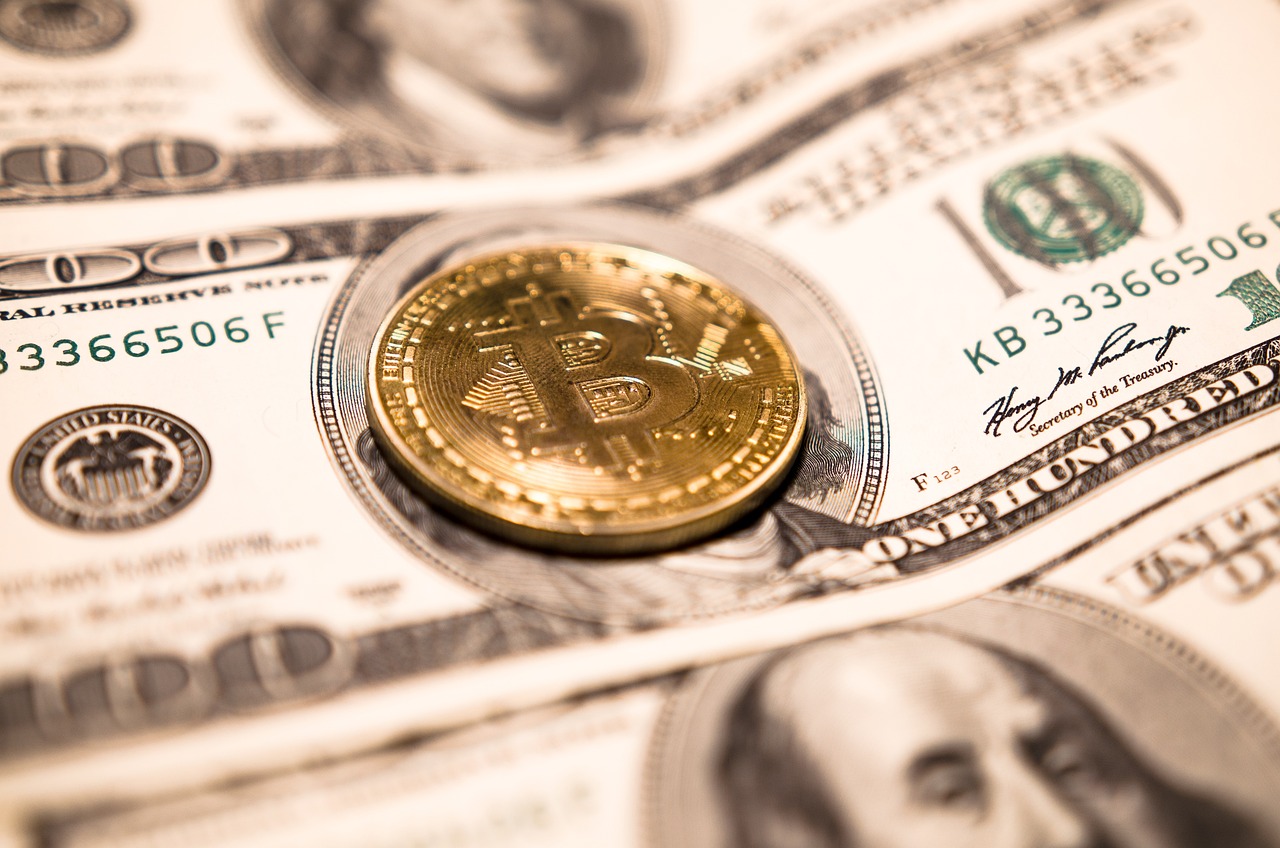
Regulatory Compliance
When diving into the world of cryptocurrency trading, should be at the forefront of your evaluation process. It's not just about picking a platform that looks good; you need to ensure that it operates within the legal frameworks established by local and international authorities. Why is this so important? Well, regulatory compliance serves as a safety net, protecting you from potential fraud and ensuring that your trading activities are secure and legitimate.
To identify exchanges that adhere to regulations, you can start by checking if they are registered with relevant authorities. For instance, in the United States, reputable exchanges are often registered with the Financial Crimes Enforcement Network (FinCEN) or have obtained licenses from state regulators. On the other hand, in Europe, look for exchanges that comply with the European Union's Anti-Money Laundering (AML) regulations. These compliance measures not only legitimize the exchange but also enhance user trust.
Additionally, consider the jurisdictional factors that come into play. Different countries have different regulations governing cryptocurrency operations. Some jurisdictions are more favorable than others, offering robust legal protections for users. For example, exchanges operating in countries with strict regulatory frameworks, like Germany or Switzerland, often provide a higher level of security compared to those in less regulated environments. This is crucial for safeguarding your investments and ensuring that the exchange has a vested interest in maintaining a trustworthy reputation.
Licenses and certifications are critical indicators of an exchange's credibility. A trustworthy platform will proudly display its licenses on its website. When evaluating an exchange, look for these credentials:
- Financial Services Authority (FSA) in the UK
- Australian Securities and Investments Commission (ASIC) in Australia
- Monetary Authority of Singapore (MAS) in Singapore
These licenses not only signify compliance with local laws but also demonstrate a commitment to maintaining high operational standards. Always verify the authenticity of these licenses by checking with the issuing authorities.
Another essential aspect of regulatory compliance is the adherence to Anti-Money Laundering (AML) and Know Your Customer (KYC) regulations. These policies are designed to prevent illicit activities and ensure that the exchange knows its customers. A reputable exchange will require users to verify their identity through documentation such as government-issued IDs and proof of address. This process may seem tedious, but it is a crucial step in protecting both the exchange and its users from potential fraud.
In summary, when evaluating a cryptocurrency exchange, regulatory compliance should not be overlooked. A compliant exchange not only enhances your trading experience but also provides peace of mind. By ensuring that the platform adheres to local and international regulations, you can trade with confidence, knowing that your investments are well-protected.
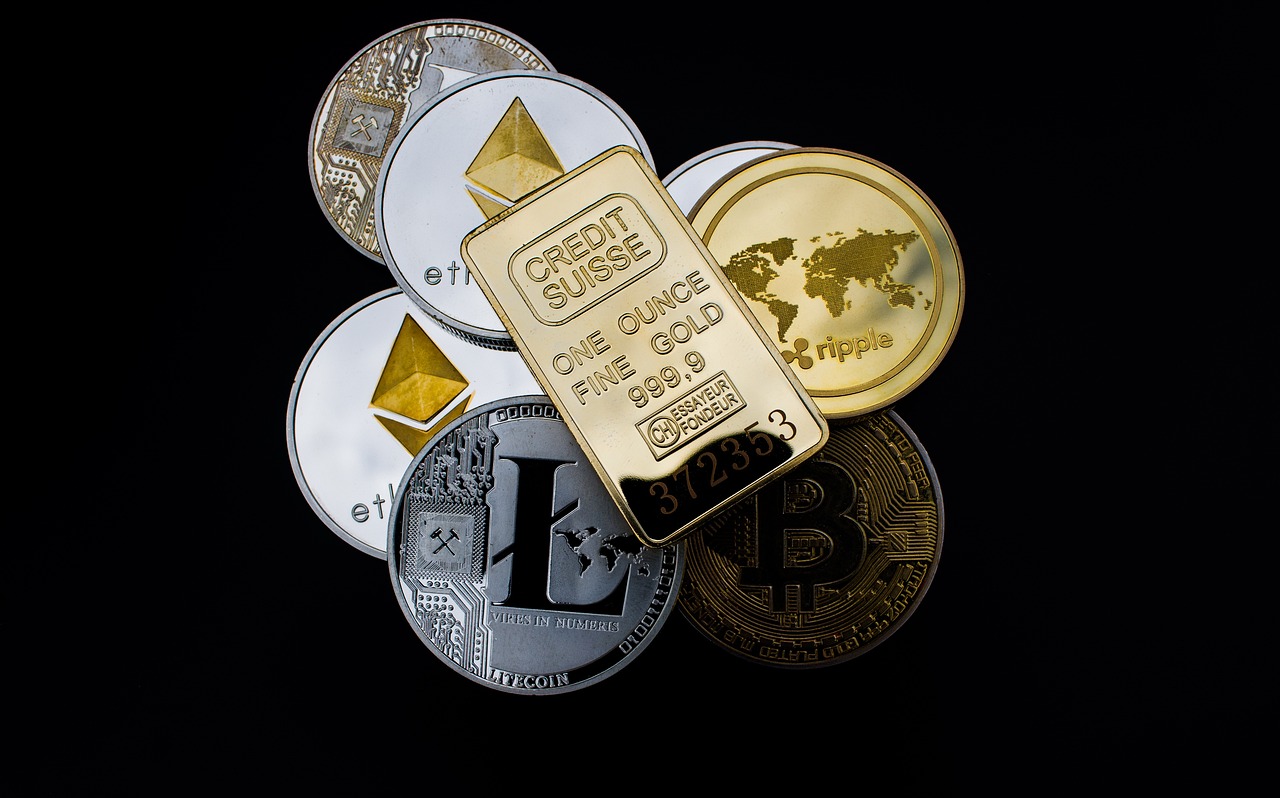
Licenses and Certifications
When diving into the world of cryptocurrency exchanges, one of the first things you should check is their . These credentials are crucial indicators of a platform's legitimacy and reliability. In essence, they serve as a badge of honor, signaling that the exchange operates within the legal frameworks set forth by governing bodies. Without these licenses, an exchange may be operating in a gray area, which can expose you to unnecessary risks.
To ensure you're trading on a reputable platform, start by verifying the specific licenses an exchange holds. Common licenses include those issued by financial regulatory authorities in various jurisdictions, such as the Financial Conduct Authority (FCA) in the UK, the Commodity Futures Trading Commission (CFTC) in the U.S., and the Australian Securities and Investments Commission (ASIC). Each of these organizations has stringent requirements that exchanges must meet to obtain and maintain their licenses.
But how do you go about verifying these credentials? Here are some steps to help you:
- Visit the official website of the regulatory body.
- Search for the exchange's name in their registry or list of licensed entities.
- Check for any recent news or updates related to the exchange's compliance status.
In addition to national licenses, some exchanges may also seek international certifications that bolster their credibility. These can include certifications like ISO 27001, which demonstrates that the exchange adheres to strict information security management practices. Such certifications can provide an extra layer of assurance that your funds and personal data are handled with the utmost care.
It's also essential to pay attention to the exchange's jurisdiction. Different countries have different regulations regarding cryptocurrency trading, and some jurisdictions are more favorable than others. For instance, exchanges based in countries with stringent regulations may offer better consumer protections compared to those in less regulated environments. Always consider the legal landscape when choosing where to trade.
In summary, checking licenses and certifications is a vital step in your due diligence process. By ensuring that an exchange is properly licensed and certified, you can trade with greater confidence, knowing that the platform is held accountable to regulatory standards. Remember, in the world of crypto, safety should always come first!
Q1: Why are licenses and certifications important for crypto exchanges?
A1: Licenses and certifications indicate that an exchange operates legally and adheres to regulatory standards, ensuring a safer trading environment for users.
Q2: How can I verify if a crypto exchange is licensed?
A2: You can verify an exchange's license by visiting the official website of the relevant regulatory authority and searching for the exchange in their registry.
Q3: What are some common regulatory bodies for crypto exchanges?
A3: Common regulatory bodies include the Financial Conduct Authority (FCA) in the UK, the Commodity Futures Trading Commission (CFTC) in the U.S., and the Australian Securities and Investments Commission (ASIC).
Q4: What does ISO 27001 certification signify?
A4: ISO 27001 certification signifies that an organization meets international standards for information security management, which can enhance user trust in a crypto exchange.
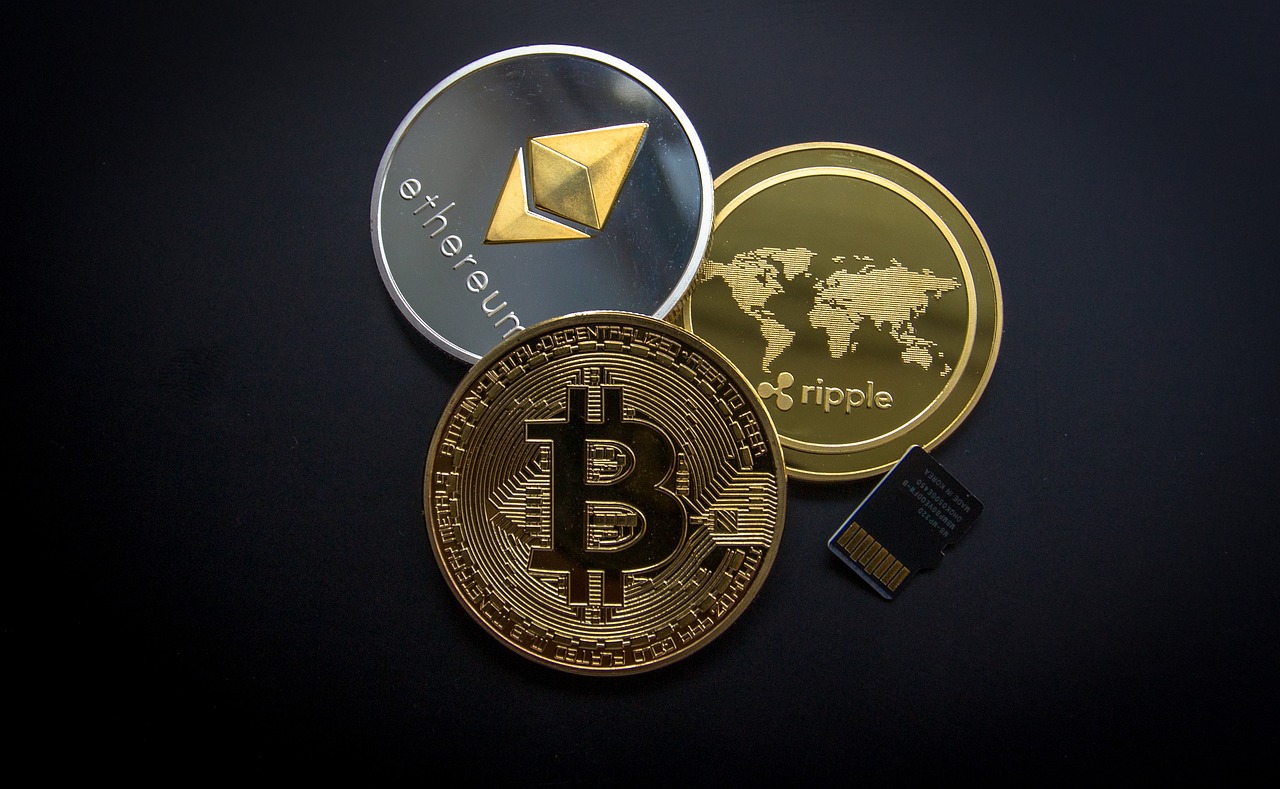
Jurisdictional Considerations
When diving into the world of cryptocurrency exchanges, it's crucial to understand the that come into play. Each country has its own set of regulations governing financial transactions, especially in the volatile realm of digital currencies. This means that the legal framework surrounding a crypto exchange can vary significantly from one location to another. For instance, an exchange operating in a country with stringent regulations may provide a higher level of security and consumer protection compared to one in a jurisdiction with lax rules. This is why it’s essential to research where the exchange is based and what laws apply to it.
In many cases, reputable exchanges will openly disclose their operational jurisdictions and the regulatory bodies they comply with. Here are a few key points to consider:
- Regulatory Bodies: Identify the government agencies that oversee the exchange. For example, in the United States, exchanges must comply with the Financial Crimes Enforcement Network (FinCEN) regulations, while in the European Union, the European Securities and Markets Authority (ESMA) plays a significant role.
- Legal Protections: Understand what legal protections are available to users in the exchange's jurisdiction. Some countries offer robust consumer protection laws, while others may leave users vulnerable to fraud.
- Tax Implications: Different jurisdictions have varying tax laws regarding cryptocurrency transactions. Familiarize yourself with these laws to avoid unexpected tax liabilities.
Moreover, the global nature of cryptocurrency means that users often engage with exchanges based in different countries. This can lead to complications, especially if a dispute arises. Knowing the laws of the exchange's home country can help you gauge what recourse you might have in such situations. For instance, if an exchange is based in a country with strong consumer protection laws, you may have more options for resolving disputes or recovering lost funds.
In addition, consider the reputation of the jurisdiction itself. Countries known for being crypto-friendly, such as Malta or Switzerland, often have a more established framework for protecting users and fostering innovation. Conversely, jurisdictions with a history of fraud or poor regulatory oversight may pose a higher risk to your investments. Always remember, the safety of your assets can often hinge on the legal environment surrounding the exchange.
In summary, conducting thorough research into the jurisdictional aspects of a crypto exchange can provide valuable insights into its legitimacy and reliability. By understanding the regulatory landscape, you can make informed decisions that align with your risk tolerance and investment goals.
- What should I look for in a crypto exchange's jurisdiction? Look for regulatory compliance, consumer protection laws, and the reputation of the jurisdiction.
- How do I find out where an exchange is based? Most reputable exchanges will list their operational jurisdiction in the 'About Us' or 'Legal' sections of their website.
- Are all jurisdictions safe for trading cryptocurrencies? No, some jurisdictions have lax regulations that can expose users to higher risks. Always do your research.
- What happens if an exchange goes bankrupt? The legal protections available to you will depend on the jurisdiction in which the exchange operates.

Compliance with AML and KYC
When diving into the world of cryptocurrency, understanding the significance of Anti-Money Laundering (AML) and Know Your Customer (KYC) regulations is crucial for both new and experienced traders. These regulations are designed to prevent illicit activities, such as money laundering and fraud, and they play a vital role in fostering a safe trading environment. So, why should you care? Well, compliance with AML and KYC not only protects the integrity of the exchange but also safeguards your investments.
First off, let's break down what KYC entails. KYC is a process that requires exchanges to verify the identity of their users. This typically involves submitting personal information such as your name, address, and identification documents. Think of it as a security checkpoint at an airport; you wouldn’t want to board a flight without showing your ID, right? Similarly, exchanges need to know who you are to ensure that they are not facilitating illegal activities.
Now, AML regulations complement KYC by ensuring that exchanges monitor transactions for suspicious activity. This could include large deposits followed by rapid withdrawals or transactions to high-risk jurisdictions. Exchanges that adhere to AML policies are required to report any unusual patterns to authorities, acting as a first line of defense against financial crimes. Imagine these regulations as a bouncer at a club, keeping out those who might cause trouble while letting in legitimate guests.
So, how can you determine if an exchange is compliant with AML and KYC? Here are a few key indicators:
- Transparent Policies: Look for exchanges that clearly outline their AML and KYC procedures on their websites. This transparency is a good sign that they take compliance seriously.
- Verification Processes: A reliable exchange will have a straightforward verification process. If they request excessive information without clear justification, it might be a red flag.
- Regulatory Recognition: Check if the exchange is recognized by regulatory bodies in its operating jurisdiction. This often indicates adherence to AML and KYC standards.
Moreover, it's essential to be aware that while KYC and AML compliance can feel tedious, they serve a greater purpose. They not only protect you as a trader but also contribute to the overall health of the cryptocurrency ecosystem. An exchange that actively implements these regulations is less likely to face legal troubles, which in turn means a more stable platform for your trading activities.
In conclusion, compliance with AML and KYC is not just a regulatory requirement; it is a critical factor that can influence your trading experience. By choosing an exchange that prioritizes these standards, you are taking a proactive step towards ensuring the safety of your investments. Remember, in the world of crypto, knowledge is power, and being informed about these compliance measures can make all the difference.
1. What is KYC?
KYC stands for Know Your Customer, a process used by financial institutions to verify the identity of their clients.
2. Why is AML important?
Anti-Money Laundering regulations help prevent illegal activities, including money laundering and fraud, which can have severe consequences for both individuals and the financial system.
3. How can I ensure an exchange is compliant?
Look for transparent policies, straightforward verification processes, and regulatory recognition to ensure compliance with AML and KYC.

Security Measures
When diving into the world of cryptocurrency trading, one of the most crucial aspects to consider is the implemented by the exchange you choose. After all, your hard-earned money and personal information are at stake! Think of a crypto exchange like a bank; just as you wouldn’t leave your cash in a vault with flimsy locks, you shouldn’t trust your digital assets to a platform without robust security protocols. Here are some critical security features to look for:
First and foremost, two-factor authentication (2FA) is a must. This extra layer of security requires not just your password but also a second piece of information, typically a temporary code sent to your mobile device. Imagine trying to enter a high-security building where you need both a key and a fingerprint scan—this is the kind of protection 2FA provides.
Next, consider the use of cold storage for funds. Many reputable exchanges store the majority of their assets offline, making it nearly impossible for hackers to access them. This is akin to keeping your valuables in a safe deposit box rather than leaving them in a drawer at home. Look for exchanges that disclose their cold storage practices, as this transparency can be a good indicator of their commitment to security.
Additionally, a solid exchange should have a comprehensive insurance policy in place. This policy can cover losses in the event of a security breach. It’s like having insurance on your home; it provides peace of mind that if something goes wrong, you’re somewhat protected. Always check if the exchange offers any form of insurance and understand the terms associated with it.
Another important aspect is the security audits that exchanges undergo. Independent audits can help ensure that the platform’s security measures are effective and up to date. If an exchange is regularly audited by a reputable third party, it shows they are serious about maintaining high security standards. You wouldn’t buy a used car without a mechanic’s inspection, right? The same logic applies here!
Lastly, be wary of exchanges that have a history of security breaches. Research the exchange’s incident history to see if they’ve faced any major hacks or data leaks. If they have, find out how they handled the situation and what measures they’ve implemented to prevent future incidents. This can give you insight into their reliability and commitment to user security.
In summary, when evaluating the security of a crypto exchange, look for two-factor authentication, cold storage practices, insurance policies, regular security audits, and a clean incident history. These factors not only enhance your safety but also build trust in the platform. Remember, the more secure the exchange, the less likely you are to lose sleep over your investments!
- What is two-factor authentication (2FA)?
2FA is a security process that requires two different forms of identification before granting access to your account, adding an extra layer of protection. - Why is cold storage important?
Cold storage keeps the majority of funds offline, significantly reducing the risk of hacking. - How can I verify an exchange's security measures?
Look for transparency in their security protocols, check for audits, and read user reviews about their experiences. - What should I do if an exchange suffers a security breach?
Stay informed about the situation, follow the exchange's instructions, and consider moving your assets to a more secure platform if necessary.
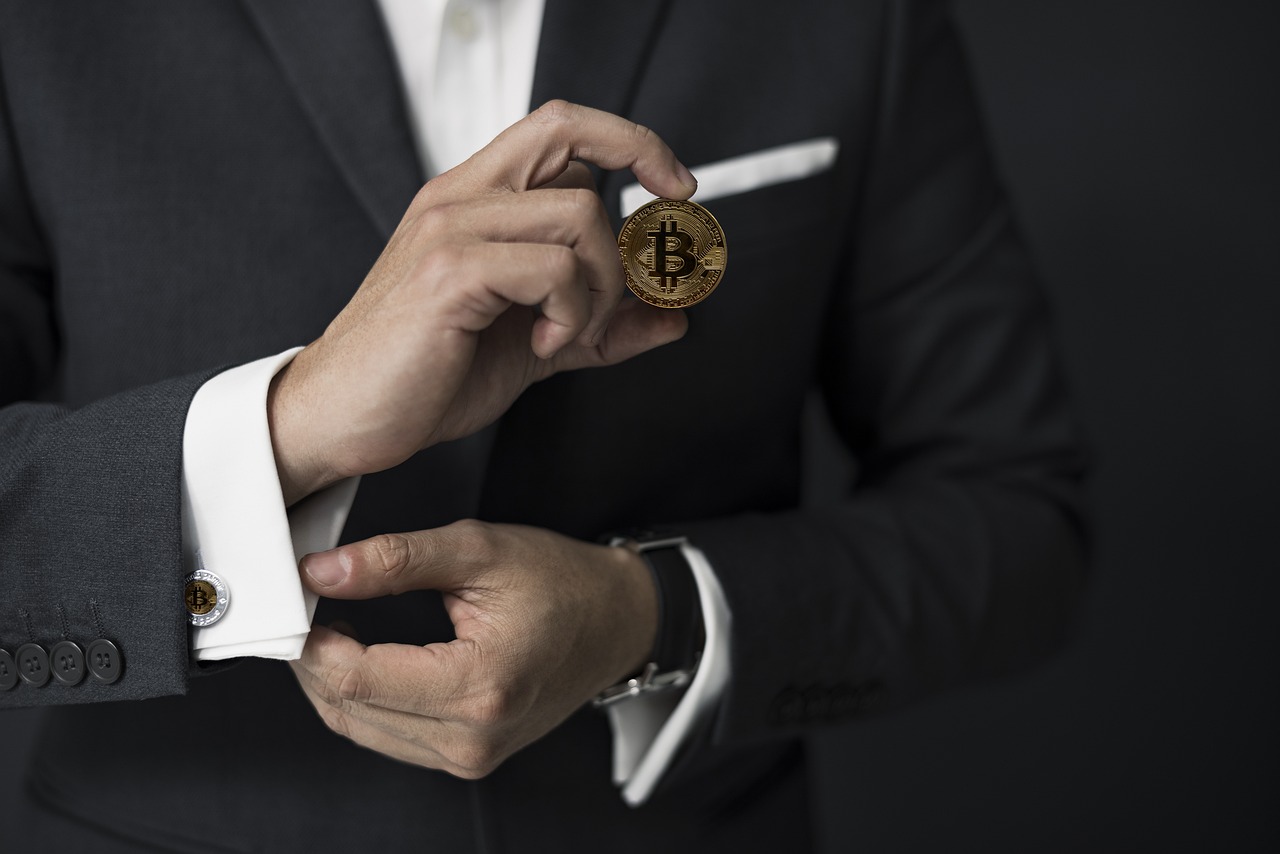
Reputation and Reviews
When diving into the world of cryptocurrency exchanges, are your best friends. Imagine walking into a restaurant where everyone's raving about the food and service; you’d feel a lot more confident about your choice, right? The same principle applies to crypto exchanges. User feedback and community sentiment can provide invaluable insights into how a platform operates and how it treats its customers.
To get a grasp on an exchange's reputation, start by exploring various online forums and review sites. Look for platforms that have a strong presence on social media and crypto-specific discussion boards like Reddit or Bitcointalk. Here, you can find firsthand accounts from users who have navigated the exchange's waters. Pay attention to recurring themes in the reviews: Are users consistently praising the customer support? Are there complaints about withdrawal times? These details can paint a clearer picture of what you might expect.
Another critical aspect to consider is the community engagement surrounding the exchange. An active community often indicates a trustworthy platform. If users are discussing issues, sharing tips, and helping each other out, it's a sign that the exchange is not only operational but also responsive to its user base. Take note of how the exchange interacts with its community. Are they transparent about issues? Do they engage with users' concerns? A company that takes the time to communicate openly is likely one that values its customers.
Additionally, you should investigate the incident history of the exchange. Every exchange has its ups and downs, but understanding its past can provide insight into its reliability. Look for any reports of security breaches, hacks, or major outages. While no platform is entirely immune to risks, how an exchange handles these incidents can be telling. For example, did they communicate promptly with users? Did they take measures to rectify the situation? A proactive approach to incidents often reflects a commitment to user safety and trust.
In summary, the reputation of a crypto exchange is not just about star ratings or a single review. It’s a tapestry woven from user experiences, community interactions, and the exchange's response to challenges. By taking the time to research and understand these elements, you can make a more informed decision, ensuring that your trading experience is as safe and rewarding as possible.
- How do I find reviews for a specific crypto exchange? You can find reviews on popular cryptocurrency forums, social media platforms, and dedicated review websites.
- What should I look for in user reviews? Look for patterns in feedback, such as customer service quality, withdrawal times, and security measures.
- Is it safe to trust user reviews? While user reviews can be helpful, it's essential to consider multiple sources and look for verified accounts to avoid misinformation.
- How important is community engagement? Community engagement is crucial as it often reflects the exchange's commitment to its users and their concerns.

Community Engagement
When it comes to choosing a cryptocurrency exchange, one of the most telling signs of its reliability is the level of it fosters. Think of it as a bustling marketplace where traders, investors, and enthusiasts come together to share their experiences, insights, and concerns. A vibrant community not only indicates that the exchange is active, but it also reflects a culture of transparency and accountability. So, how do you gauge this community engagement? Well, it’s all about diving into the discussions, forums, and social media channels where users gather.
Start by exploring platforms like Reddit, Twitter, and Telegram. These platforms often serve as the pulse of the crypto community, where you can find real-time discussions about various exchanges. Look for threads where users are discussing their experiences—both good and bad. Are people praising the exchange for its excellent customer service? Or are there complaints about slow withdrawals or unresponsive support? These conversations can provide invaluable insights into what you can expect when trading on the platform.
Moreover, consider the exchange's presence on social media platforms. A proactive exchange will often engage with its users, answering questions, addressing concerns, and sharing updates about new features or security measures. This level of interaction not only enhances user trust but also indicates that the exchange values its customers' feedback. If an exchange is silent or unresponsive, it might be a red flag, suggesting a lack of commitment to customer satisfaction.
Another excellent way to gauge community engagement is through participation in crypto events and webinars. Exchanges that sponsor or host these events are often more committed to building a strong community. They provide opportunities for users to learn about the platform, ask questions directly to the team, and interact with other traders. Engaging in these events can also help you understand the exchange's long-term vision and its dedication to user education.
In summary, community engagement is a crucial factor to consider when evaluating a crypto exchange. By actively participating in discussions, following the exchange on social media, and attending events, you can gain a deeper understanding of the platform's reliability and user satisfaction. Remember, a well-engaged community often reflects a trustworthy exchange, making it easier for you to make informed trading decisions.
- What is community engagement in cryptocurrency exchanges?
Community engagement refers to the level of interaction and communication between an exchange and its users, often seen in forums, social media, and events. - Why is community feedback important?
Community feedback provides insights into user experiences, helping potential users gauge the reliability and trustworthiness of an exchange. - How can I find community discussions about a crypto exchange?
You can find discussions on platforms like Reddit, Twitter, and Telegram, where users share their experiences and opinions about various exchanges. - What should I look for in community engagement?
Look for active discussions, prompt responses from the exchange, and participation in events, as these indicate a commitment to user satisfaction.
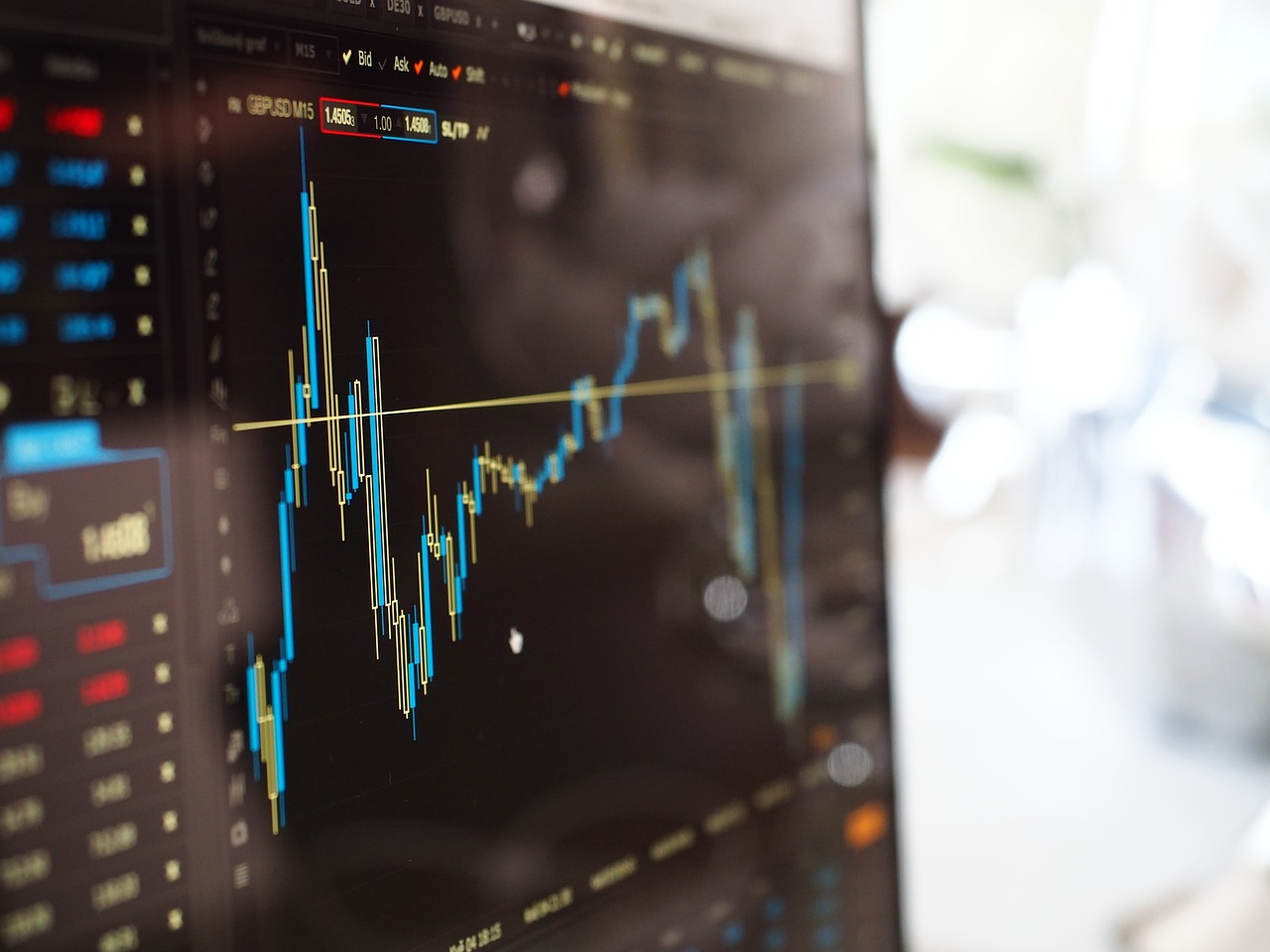
Incident History
When evaluating a cryptocurrency exchange, one of the most telling factors is its . This refers to any previous security breaches, hacks, or operational failures that the exchange has experienced. Just like you wouldn’t buy a used car without checking its accident history, you shouldn’t engage with a crypto exchange without understanding its past. An exchange with a clean record can often be a sign of robust security measures and responsible management, while a history of incidents might raise red flags about its reliability.
To dig into an exchange's incident history, start by looking for credible sources of information. You can:
- Check the exchange's official website for any announcements regarding past incidents.
- Visit cryptocurrency news websites that report on security breaches and hacks.
- Engage in community forums or social media platforms where users discuss their experiences with different exchanges.
Understanding the nature of past incidents is crucial. For instance, if an exchange experienced a hack, consider the following:
| Incident Type | Date | Impact | Response |
|---|---|---|---|
| Security Breach | January 2020 | Loss of $10 million in user funds | Implemented two-factor authentication and improved security protocols |
| Operational Failure | March 2021 | Temporary withdrawal suspension | Enhanced server capacity and updated infrastructure |
By analyzing such incidents, you can gauge how the exchange responded. Did they communicate transparently with their users? Did they take steps to enhance security measures afterward? These factors can indicate the exchange's commitment to protecting its users’ assets. If an exchange has a history of repeated incidents without substantial improvements, it might be prudent to consider alternatives.
Moreover, community feedback can provide additional insights. Users often share their experiences regarding how an exchange handled past incidents. Look for patterns in these discussions. If many users express dissatisfaction with how an exchange managed a crisis, it could be a warning sign. Remember, in the world of crypto, trust is paramount, and understanding an exchange's incident history is a vital step in your due diligence process.
- What should I do if I find a negative incident history for an exchange?
Consider looking for alternative exchanges with better security records and user trust. - How can I stay updated on security incidents related to exchanges?
Follow reputable news sources and join community forums to receive real-time updates. - Is a single incident enough to dismiss an exchange?
Not necessarily. Evaluate the incident's impact, the exchange's response, and whether they have taken steps to prevent future occurrences.
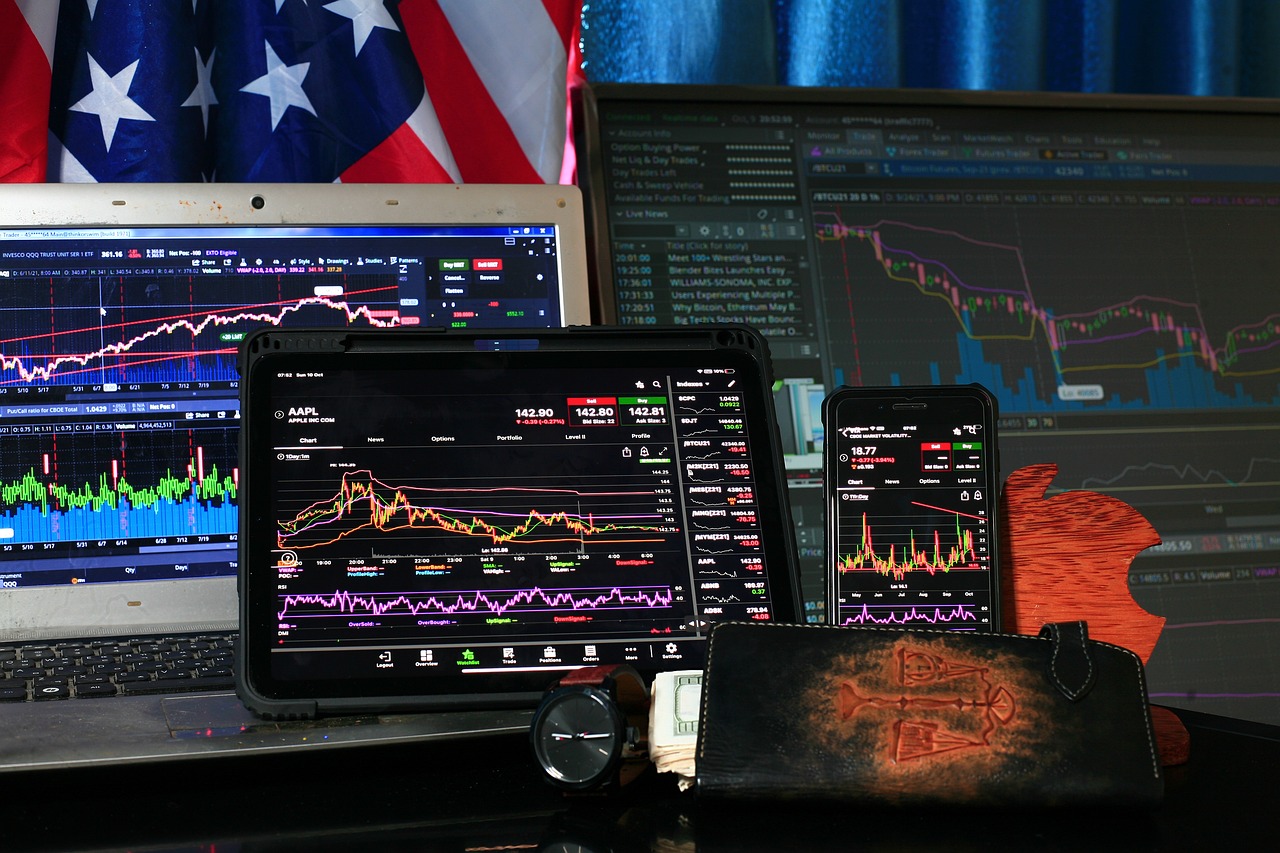
Trading Fees and Costs
When diving into the world of cryptocurrency trading, one of the most crucial aspects to consider is the associated with using a crypto exchange. Just like a hidden current in a vast ocean, these fees can significantly impact your overall trading strategy and profitability. Understanding how these fees work is essential to ensure that you’re not caught off guard when it’s time to cash out your gains.
Every exchange has its own fee structure, which can vary widely. Some platforms charge a flat fee per trade, while others may have a tiered system based on your trading volume. To give you a clearer picture, here’s a breakdown of the most common types of fees you might encounter:
| Type of Fee | Description |
|---|---|
| Trading Fee | A fee charged for executing a buy or sell order. |
| Withdrawal Fee | A fee taken when you withdraw funds from the exchange to your wallet. |
| Deposit Fee | A fee that may be charged when you deposit funds into your account. |
| Inactivity Fee | A fee charged if your account remains inactive for a certain period. |
Now, you might be wondering, "How do these fees affect my trading?" Well, let’s put it this way: if you’re trading frequently, even a small percentage fee can eat into your profits over time. Imagine you’re a day trader making multiple trades daily; those fees can add up quickly, like tiny leaks in a boat that eventually lead to it sinking. Therefore, it’s vital to calculate the total cost of trading on any platform before you start.
Moreover, fee transparency is another critical factor. A reputable exchange will clearly disclose its fee structure, allowing you to make informed decisions without the fear of hidden charges lurking in the shadows. It’s like having a clear map before embarking on a journey; you want to know the terrain and any potential obstacles ahead of time. So, always look for exchanges that provide detailed information about their fees, ideally in a dedicated section on their website.
In addition to understanding the fees, it’s also essential to compare them across different platforms. Some exchanges may offer lower trading fees but higher withdrawal fees, while others might have a more balanced approach. By taking the time to compare these costs, you can find an exchange that aligns with your trading habits and financial goals. Remember, it's not just about finding the cheapest option; it’s about finding the best value for your trading activities.
As you navigate through the world of crypto trading, keep in mind that understanding trading fees and costs is just one piece of the puzzle. It’s essential to combine this knowledge with insights into security, reputation, and regulatory compliance to ensure a holistic approach to your trading strategy.
- What are trading fees? Trading fees are the costs associated with executing buy or sell orders on a cryptocurrency exchange.
- How can I find out the fees for a specific exchange? Most exchanges provide a detailed fee structure on their websites, often found in the FAQs or support sections.
- Do all exchanges have the same fee structure? No, fee structures can vary widely between exchanges, so it’s crucial to compare them before choosing a platform.
- Are there any hidden fees I should be aware of? Always check for transparency in fee disclosures; reputable exchanges will provide clear information about all applicable fees.

Types of Fees
When diving into the world of cryptocurrency exchanges, one of the first things you should familiarize yourself with is the fee structure. Just like when you’re planning a trip, you wouldn’t want to be hit with unexpected costs along the way, right? Understanding the various types of fees can help you avoid those nasty surprises that can eat into your profits. Here’s a breakdown of the most common types of fees you might encounter:
- Trading Fees: These are the fees charged for executing a trade on the platform. They can be either a flat fee or a percentage of the transaction amount. Some exchanges offer tiered pricing, where your trading volume over a specific period can lower your fees.
- Withdrawal Fees: When you decide to take your funds off the exchange and into your wallet, you may incur a withdrawal fee. This fee can vary significantly between exchanges and is often a flat rate or a percentage of the amount withdrawn.
- Deposit Fees: Not all exchanges charge for deposits, but some do. These fees can apply when you are transferring funds into your exchange account. It’s essential to check this before you fund your account.
- Inactivity Fees: Some exchanges may charge a fee if your account remains inactive for a certain period. This is something to keep in mind, especially if you’re a casual trader.
Now, you might be wondering how these fees can impact your trading strategy. Well, let’s say you’re a day trader making multiple trades in a single day. If you’re paying high trading fees, those costs can quickly add up and eat into your profits. On the flip side, if you’re a long-term holder, withdrawal fees might be more relevant to you as you eventually move your assets to a secure wallet.
Additionally, it’s crucial to compare the fee structures across different exchanges. Some platforms may advertise low trading fees but have high withdrawal fees, while others might have a more balanced approach. Always read the fine print and ensure you understand what you’re getting into.
To help you visualize this better, here’s a simple table comparing the fee structures of three popular exchanges:
| Exchange | Trading Fee | Withdrawal Fee | Deposit Fee |
|---|---|---|---|
| Exchange A | 0.1% | $2.00 | None |
| Exchange B | 0.2% | $1.50 | 1% of deposit |
| Exchange C | 0.15% | $3.00 | None |
As you can see, each exchange has its own fee structure, and understanding these differences can help you make informed decisions. Don’t forget to keep an eye on the transparency of these fees as well. A reputable exchange will clearly outline all fees associated with trading, deposits, and withdrawals.
Q: What are trading fees, and how are they calculated?
A: Trading fees are the charges incurred when buying or selling cryptocurrencies on an exchange. They can be a flat fee or a percentage of the transaction amount, and they may vary depending on your trading volume.
Q: Are withdrawal fees standard across all exchanges?
A: No, withdrawal fees can vary significantly between exchanges. It's essential to check the fee structure of each platform before making a decision.
Q: Can I avoid fees altogether?
A: While you may not be able to eliminate fees entirely, you can look for exchanges that offer competitive rates or promotions that reduce fees for specific trading pairs or activities.
Q: What should I do if I find hidden fees?
A: If you encounter unexpected fees, it’s best to contact the exchange’s customer support for clarification. Additionally, consider researching other exchanges that are more transparent about their fee structures.
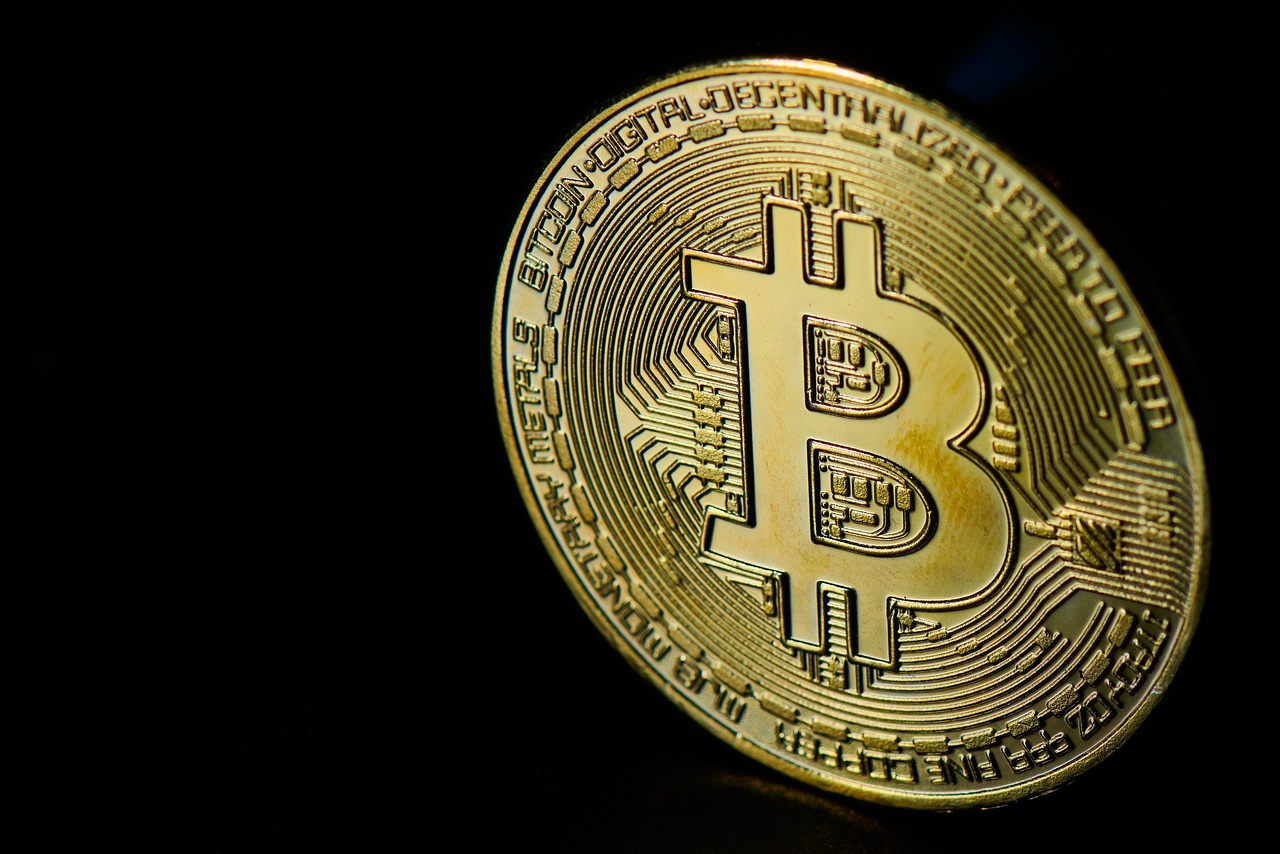
Fee Transparency
When diving into the world of cryptocurrency exchanges, one of the critical factors that can make or break your trading experience is . Imagine you're at a buffet, excited to try a little bit of everything, but then you find out that each dish comes with a hidden charge. Frustrating, right? The same principle applies here. A transparent fee structure is essential because it builds trust and allows you to make informed decisions about where to trade your digital assets.
Many exchanges have different types of fees, including trading fees, withdrawal fees, and deposit fees. It’s vital to understand these charges upfront. For instance, trading fees are usually a percentage of the transaction amount, while withdrawal fees can vary based on the cryptocurrency you’re dealing with. If an exchange is upfront about these costs, it’s a good sign that they value their users' trust. On the other hand, if you find yourself digging through fine print or vague language, you might want to reconsider.
Furthermore, some exchanges may offer tiered fee structures based on your trading volume. This means that the more you trade, the lower your fees can become. While this sounds appealing, it’s crucial to read the details carefully. Some platforms might advertise low fees but then impose hidden charges that can significantly impact your profitability. Always ask yourself, “Are these fees reasonable?” and “Do they align with what I’m getting in return?”
To help you navigate this complex landscape, here’s a quick table summarizing common fee types you might encounter:
| Fee Type | Description |
|---|---|
| Trading Fee | A percentage charged on each trade executed. |
| Withdrawal Fee | A fee charged when you withdraw funds from the exchange. |
| Deposit Fee | A fee that can be charged when you deposit funds into your account. |
| Inactivity Fee | Some exchanges charge a fee if your account is inactive for a certain period. |
In conclusion, always prioritize exchanges that practice . Look for platforms that openly disclose their fees and offer clear, straightforward explanations of what you’re paying for. By doing your homework and understanding the fee structure, you’ll be better equipped to maximize your trading profits and minimize unexpected costs. After all, in the world of crypto, every penny counts!
- What are trading fees? Trading fees are charges applied to each transaction you make on an exchange, typically calculated as a percentage of the trade amount.
- How can I find out about an exchange’s fees? Most exchanges provide a dedicated section on their website outlining their fee structure. Always read this section before signing up.
- Are lower fees always better? Not necessarily. While lower fees are attractive, consider the overall service, security, and reputation of the exchange.
- What is a withdrawal fee? This is a fee charged when you withdraw your funds from the exchange to your wallet or bank account.
Frequently Asked Questions
- What is due diligence in the context of a crypto exchange?
Due diligence refers to the thorough evaluation of a cryptocurrency exchange before you start trading. It involves assessing the risks, verifying the exchange's legitimacy, and ensuring that the platform is safe and compliant with regulations.
- Why is regulatory compliance important for crypto exchanges?
Regulatory compliance is crucial because it ensures that the exchange adheres to local and international laws, which helps protect users from fraud and enhances the overall security of the trading environment.
- How can I verify a crypto exchange's licenses and certifications?
You can verify an exchange's licenses and certifications by checking their official website, looking for regulatory body approvals, and searching for any public records that confirm their operational legitimacy.
- What should I know about AML and KYC compliance?
AML (Anti-Money Laundering) and KYC (Know Your Customer) compliance are essential policies for crypto exchanges. They ensure that the platform verifies user identities and prevents illegal activities, making it safer for everyone involved.
- What security measures should I look for in a crypto exchange?
Look for features like two-factor authentication, cold storage for funds, encryption protocols, and regular security audits. These measures help protect your assets and personal information from potential threats.
- How do I assess the reputation of a crypto exchange?
You can assess an exchange's reputation by reading user reviews, checking community feedback on forums, and researching any past incidents or security breaches that may have affected users.
- What types of fees can I expect from a crypto exchange?
Crypto exchanges typically charge various fees, including trading fees, withdrawal fees, and deposit fees. Understanding these fees is essential to evaluate the overall cost of using a platform.
- How can I find out if an exchange is transparent about its fees?
To find out if an exchange is transparent about its fees, look for clear information on their website regarding all fees involved. Avoid exchanges that hide fees in fine print or do not provide detailed fee structures.









